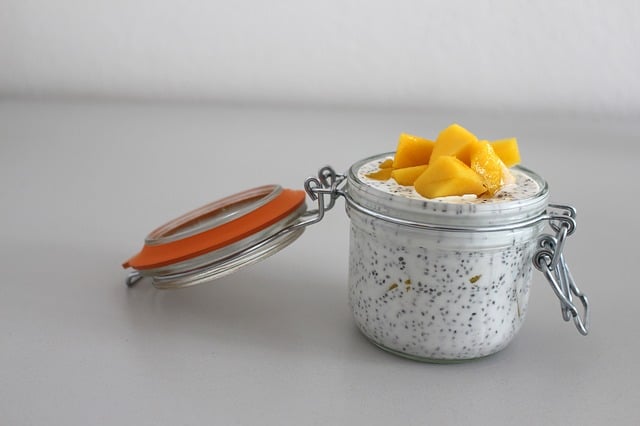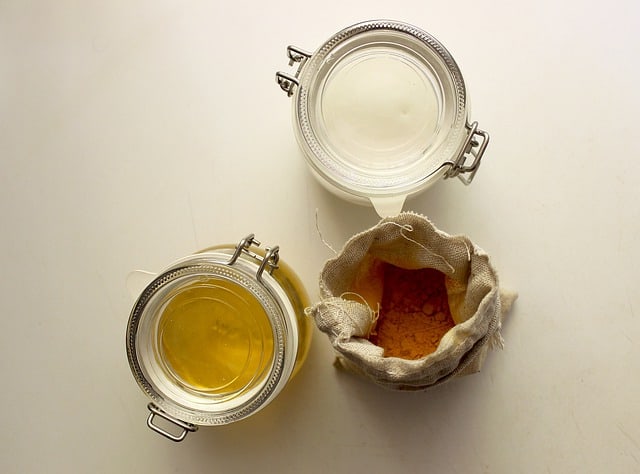
There are more and more alternatives to dairy, almost as many as there are individual tastes when it comes to creamers for your coffee. In the earlier days, the dairy alternative market was monopolized by the trio of soy milk, almond milk, and coconut milk.
In the recent years, such varieties as cashew milk, rice milk, and oat milk sprang into the picture. As vegan and healthy eating trends that warns against too much dairy intake surged, many artificial plant-based products became popular. Beyond Meat burgers, soy-based cheese, etc. Despite these vogues, many still cannot do without yogurt, especially the Greek one.
Contents
People love and believe Greek yogurt so much that some go so far as to suggest that this creamy goodness is so wonderful that one should consume it even when lactose intolerant.1 Even some lactose-free versions have sprung up that somehow did not come from plants.
While people are wary about lactose-free dairy products with sustained richness (lactose-free cream, anyone?), they seem to have forgotten about a yogurt product created back in 2009 that is dairy-free and natural: Coconut yogurt. In this blog post, we are taking a closer look at coconut yogurt and how it affects your health.
The origin story
Sometimes the origin story of a food product is just as exciting as that of a superhero’s (okay, not quite as much, but you get the point). Today a globally famous brand, CO YO’s founders Sandra and Henry Gosling created the first coconut yogurt in the world in 2009. Originally Henry wanted to get into the business of Kosher- and organic-certified coconut oil, exporting to Israel, but he dismissed the idea, having decided it was a silly one Sandra would not have backed.
It was not easy to find jobs at 62, so Henry needed to think outside the box, and that was how he came upon the coconut oil business. But as the chess master Emanuel Lasker said: “When you see a good move, look for a better one.” And that was exactly what Henry did. The idea of making yogurt out of coconut milk came to him in a dream, which was later turned into CO YO.
What is coconut yogurt: the basics

Coconut yogurt, in short, is made from coconut milk and starch, fermented by live cultures. The real deal is made without any animal products, and so makes a good substitute for other plant-based dairy alternatives, be it for dietary reasons (e.g., can’t have rice) or allergies (e.g., nut allergies).
According to the CO YO company website, coconut yogurt is made from the milk and cream squeezed directly out of coconut flesh, making its fat concentration 3 times less than found in coconut oil. Of course, coming straight from a plant not rich in protein, the coconut yogurt contains significantly less protein per 100 g than its Greek cousin, at only 0.8 grams.
Benefits from the coconut yogurt: myths and facts
It is not for nothing that coconut products are much sought-after. But some of the much coveted benefits claimed to be found in coconut products are myths and some are real facts backed by science.
Myth: Coconut yogurt is rich in nutrients and healthy fats.
Fact: Yes, it is a decent source of vitamins and minerals, but not much more beyond that.
From coconut flesh, one can get impressive daily values of vitamin C, iron, magnesium, and fibre. But that’s the flesh and not the milk. For example, while the flesh of coconut provides 36% daily value in dietary fibre, its milk supplies less than a quarter of that (less than the same amount of multigrain bread).
A systematic review on clinical trials studying the effects of consuming coconut oil on a variety of health aspects confirmed that although coconut oil, containing mainly saturated fat, does not affect the usual culprits of bad health such as inflammation, it does increase overall cholesterol levels. Due to this reason, the researchers recommended we consume coconut oil with caution and should not treat it as a generally healthy oil.
Given that coconut yogurt is made from coconut milk or cream, while it does maintain some benefits found in the flesh along with limited benefits from the oil, it is better not to exaggerate its health-promoting potentials.
Myth: Coconut yogurt can improve your health.
Fact: It helps to regulate certain aspects in certain diseases, but there’s no evidence for improving health in general.
For people with high cholesterol levels, eating coconut flesh does seem to have a down-regulatory effect. Moreover, studies have also found that coconut kernel protein is a rich source of arginine and has been found to mitigate the damaging effects on the pancreas in diabetic rats.
Another way in which coconut oil may have medicinal effects is through weight loss in obese people.10 As we know, obesity is not only a condition occurring on its own, but one that is often concurrent with diabetes and increases the chances of getting a heart disease.
Although there are studies that found much less risks for heart diseases in tropical islands that consume coconut products regularly, because of the different lifestyle and dietary patterns (e.g., consuming more fish and less red meat), it is probably wise not to generalize the results too readily.
Because the yogurt made from coconut milk does retain some proteins and oils from the flesh, it does seem like a healthier alternative to the traditional Greek yogurt, for dairies and the diseases mentioned above typically don’t play well together.
Myth and Fact: Coconut yogurt is good for your digestive and immune system.
No, this has nothing to do with dietary fibres. As mentioned, the high fibre content is mainly present in the coconut flesh, not the coconut milk used to make coconut yogurt.5 No, these benefits come from the live cultures used in yogurts, the probiotics.
So…yeah, this one’s not special for coconut yogurt, just your plain o’ yogurts of all varieties.
Myth: Coconut yogurt is rich in antioxidants.
Fact: Maybe, but research has not been done.
By now, it is clear we have a trend emerging here: The benefits are true, but only for specific parts of the coconut, such as its oil or flesh, but not entirely true for the coconut yogurt made from the milk, which was made by pressing the coconut as a whole. And so it is again the case for coconut yogurt and antioxidant properties.
Studies have found that in both coconut water and virgin coconut oil, there are plenty of antioxidants to warrant a “health-beneficial” label. But the evidence for such properties in coconut milk is still scarce. That said, this one has been found in coconut water, and milk is mostly water. For that reason, coconut yogurt probably does contain rich antioxidants, but it’s not confirmed by empirical research.
So, is coconut yogurt a healthy alternative or no?

The short answer to the question in heading: No. But let me elaborate.
To the hype around plant-based-health-food hype surrounding almost all plant-based products, coconut yogurt does not live up. There is no real evidence on it having general health benefits to already overall healthy people. It certainly doesn’t belong to superfood. In fact, due to its oil content being mainly saturated fat, we should eat it in small amounts.
For the people struggling with some health issues like obesity and diabetes, coconut flesh and virgin coconut oil may have beneficial effects, but the evidence isn’t clear about coconut milk or, in our specific case, yogurt. That being said, because dairy products have been the subject of many health concerns, including diabetes, cardiovascular diseases, and cancer, due to its high saturated fat content and hormones inherent in them. From this perspective, coconut yogurt may indeed provide some benefits by avoiding some of these pitfalls.
Because the process used to produce coconut yogurt differs significantly from the processes used to make, say, virgin coconut oil, the researched benefits cannot entirely translate even though coconut yogurt does contain quite a bit of fats.
All in all, coconut yogurt is not necessarily a better alternative for the traditional dairy yogurt, because benefits related to coconut has only been found in its flesh or refined virgin oil. Not a whole lot of research has been done on the health benefits of coconut yogurt, and any benefits claimed to be related to it tend to be speculations, at best, based on these researches on coconut flesh and extracted, purified oil.
However, it is a good alternative for those of you who have been told by the doctor to avoid dairy products, although, just to be safe, you should still seek counsel before swapping out your Greek yogurt for coconut. And for the healthy folks, unless you care very much about protein, which coconut variety has very little, swapping to coconut yogurt may be a change of taste, but don’t expect it to do much for your health. In fact, better watch out for those saturated fats in this tropical yogurt.





